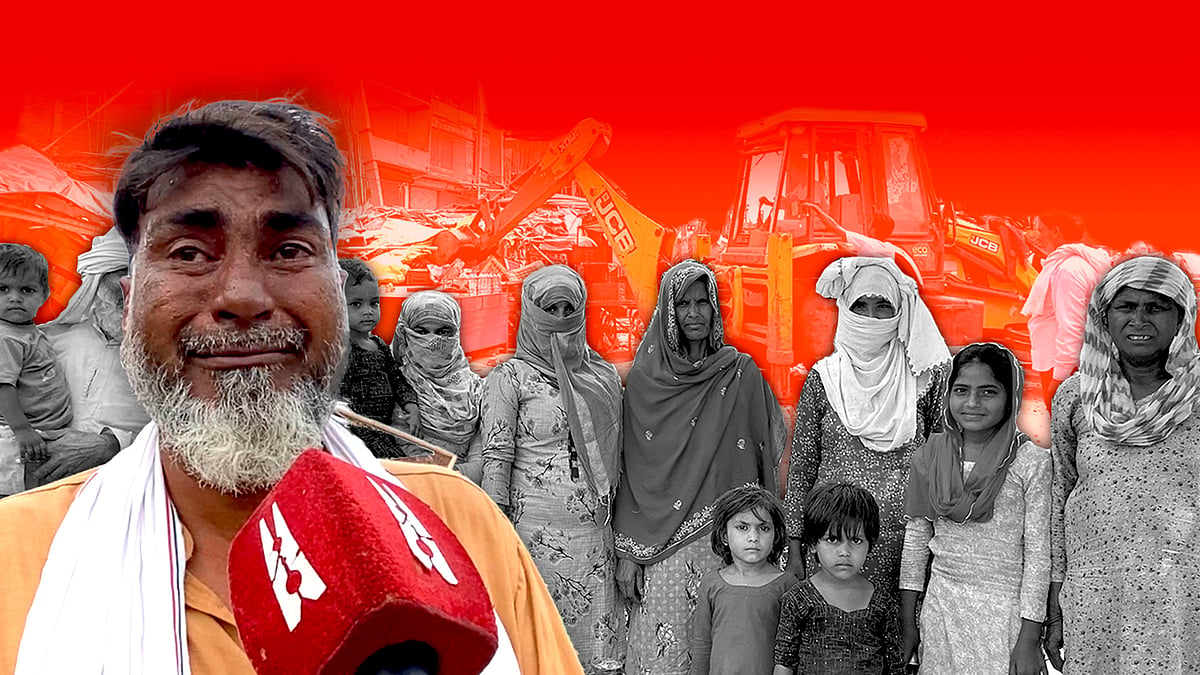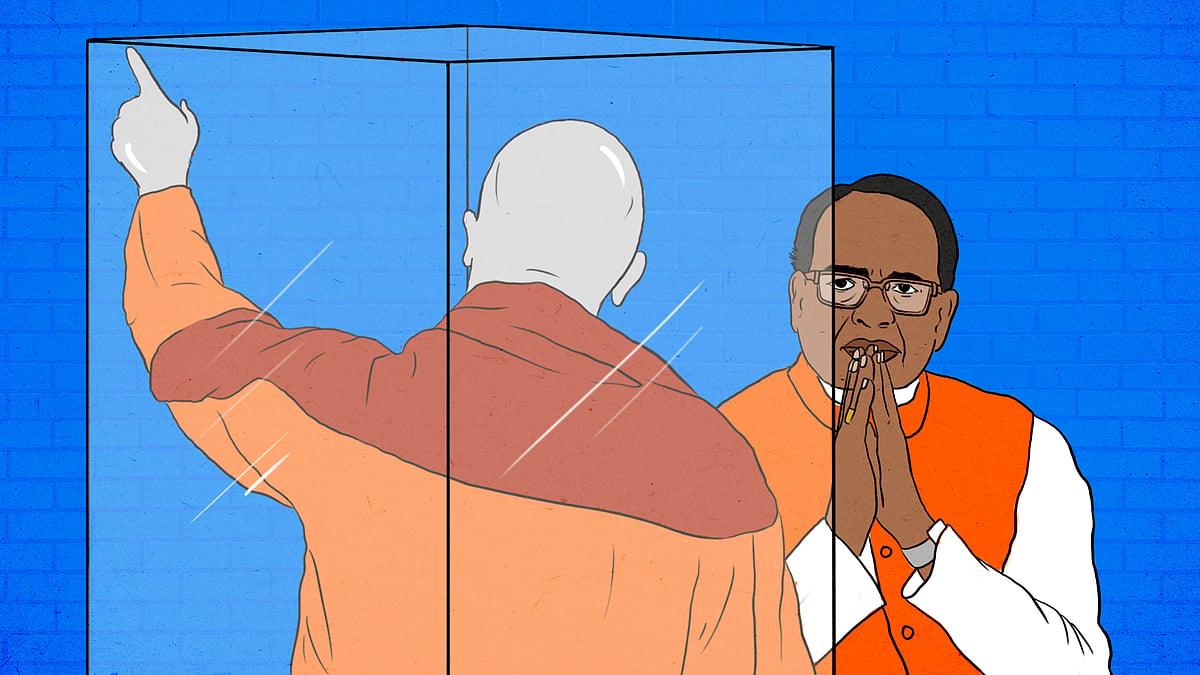The bulldozer as a symbol of state power – and how Gandhi warned against it
This is how the dream of a republic dies under the illusion of a democracy, 76 years after independence.
Seventy-six years ago, Jawaharlal Nehru spoke of a new nation’s tryst with destiny.
But the birth of the independent republic of India was marred by wide-spread violence caused by the decision to partition the subcontinent on religious grounds. It was a half-baked idea imported from Europe – a narrow sense of national identity premised on a misguided sense of nationalism that had already plagued that old continent for a couple of centuries.
At the time, Gandhi was almost alone in predicting the chaos and violence that would inevitably follow any attempt to draw an imagined national boundary across a civilisation that had survived since the beginning of history. A civilisation that had witnessed countless political turbulences and yet had almost no instance of sectarian tension or conflict engulfing significant parts of the whole society. Instances of social or communal tension were always locally confined and therefore the embers died sooner.
Every crisis fuels fear. It provides those in political power with an opportunity to expand the scope of the state, promising to ensure security to the population. Gandhi and his band of followers showed how sanity could be restored in a riot-hit Calcutta and Bengal. In contrast, the might of the British empire not only failed to foresee the tragedy of Partition but also could do little to douse the flames.
Meanwhile, Indian leaders, including avowed followers of Gandhian ideals, forgot the Mahatma’s most fundamental criticism of state power. Gandhi had repeatedly warned of a fundamental aspect of a nation state: its claim to legal monopoly over force. Gandhi, as a practitioner of nonviolence, was very concerned about the political tendency to expand the scope of the state.
Every action of the state reflects the implicit or explicit violence of the state, whether in permitting certain acts or prohibiting others. Gandhi foresaw that the expansion of the state would normalise violence in society, fragment social coherence, and curb social capacities, making society vulnerable to power. Gandhi had pioneered an all-encompassing form of politics that not only created a new sense of political identity among the people, but also rebuilt their confidence and capabilities. Expanding the scope of violence through the state would, he recognised, pose a most serious threat to India’s new-found political identity and civic engagement.
The tragedy of Partition not only clouded the celebration of independence but also cast a shadow on the deliberations at the Constituent Assembly that was drafting the new Constitution. As a result, the idealism of the new republic was tempered by institutional compromises that sought to empower the union government and centralised governance in the belief that it would protect the nascent state. But in the process, it fatally undermined the spirit of Gandhian swaraj that rooted politics at the grassroots.
More than 75 years after independence, the prominent and visible use of the bulldozer as the preferred instrument of the state is hardly an aberration but the culmination of the institutional compromises that were sowed at the dawn of independence.
This is reflected in the complete separation of politics from any fundamental values, and its complete identification with state power. Democracy seems to have robbed people of their sense of sovereignty in the republic.
The bulldozer is therefore a tragic yet true symbol of state power over the people in India today. And this is not just a reflection of political power over ordinary people – the silence of many intellectuals and business leaders is a reflection of the sense of terror in the hearts of the apparently important and influential sections of society as well. They seem to be aware that the security of their prestige and wealth lies in the hands of those wielding the levers of law, rather than rule of law.
Rule by law sacrifices security of property and propriety, and negates the sanctity of rule of law. This makes every right vulnerable to legalised violation and exposes the tenuous nature of rights that relies primarily on legal protection. This underscores the need to reestablish rights on the basis of wider societal consensus and trust. It also shows that rights are best protected when they are seen as mutual recognition and obligation to protect each other’s rights at the societal level.
And this can be best achieved when people are committed to uphold their own civic responsibility and moral duty to protect one’s own fundamental values, and therefore each other’s rights.
This reinforces Gandhi’s emphasis on performing one’s duty as one’s own moral commitment, rather than just expanding the scope of legal rights. Expanding and legalising rights reinforces violence and entrenches state institutions with their legal monopoly over violence.
Gandhi warned that every action of the state is a manifestation of violence. Therefore, expanding the state in the name of protecting rights only empowers the state at the expense of the people. Worse, such growth of institutional violence only helps normalise violence in society. Not surprisingly, it enables the state to selectively protect or violate rights of some at the cost of others, through acts of omission and commission.
As rule of law degenerates into rule by law, society fragments and people get divided. As the application of the law becomes uncertain and unpredictable, the people entrusted to enforce the law become increasingly powerful because of their capacity to arbitrarily apply or disregard the law. As law gets increasingly disconnected from its spirit of fairness and justice, it undermines the essence of social consensus on certain basic shared values and sense of morality. Societal trust decays, law becomes an instrument of political power, and in a fragmented society, people face a stark choice: seek political patronage in the hope of securing their rights, which soon becomes a pursuit of privilege and privileged protection at the cost of others
Consequently, the two essential strands of any truly democratic republic, equality and fraternity, are lost. This just compounds the decay in the shared sense of values and morality that lies at the root of any family, community and society.
As the state and its institutions of violence become dominant, people largely cower in fear and uncertainty. Political power hangs as the Damocles’ sword over the population. Life and liberty lie at the mercy of those in power, as the dream of a democracy and a republic breathes its last.
Nuh therefore is the new normal in India. The bulldozer provides a glimpse into the proposed 1,000-year reign announced on August 15, 2023, and perhaps heralds the emergence of a new Reich!
 Nuh: 750 homes, shops demolished, locals blame govt, ‘false media narrative’
Nuh: 750 homes, shops demolished, locals blame govt, ‘false media narrative’ What’s fuelling Shivraj Chouhan’s journey from ‘Mamaji’ to ‘Bulldozer Mama’?
What’s fuelling Shivraj Chouhan’s journey from ‘Mamaji’ to ‘Bulldozer Mama’?